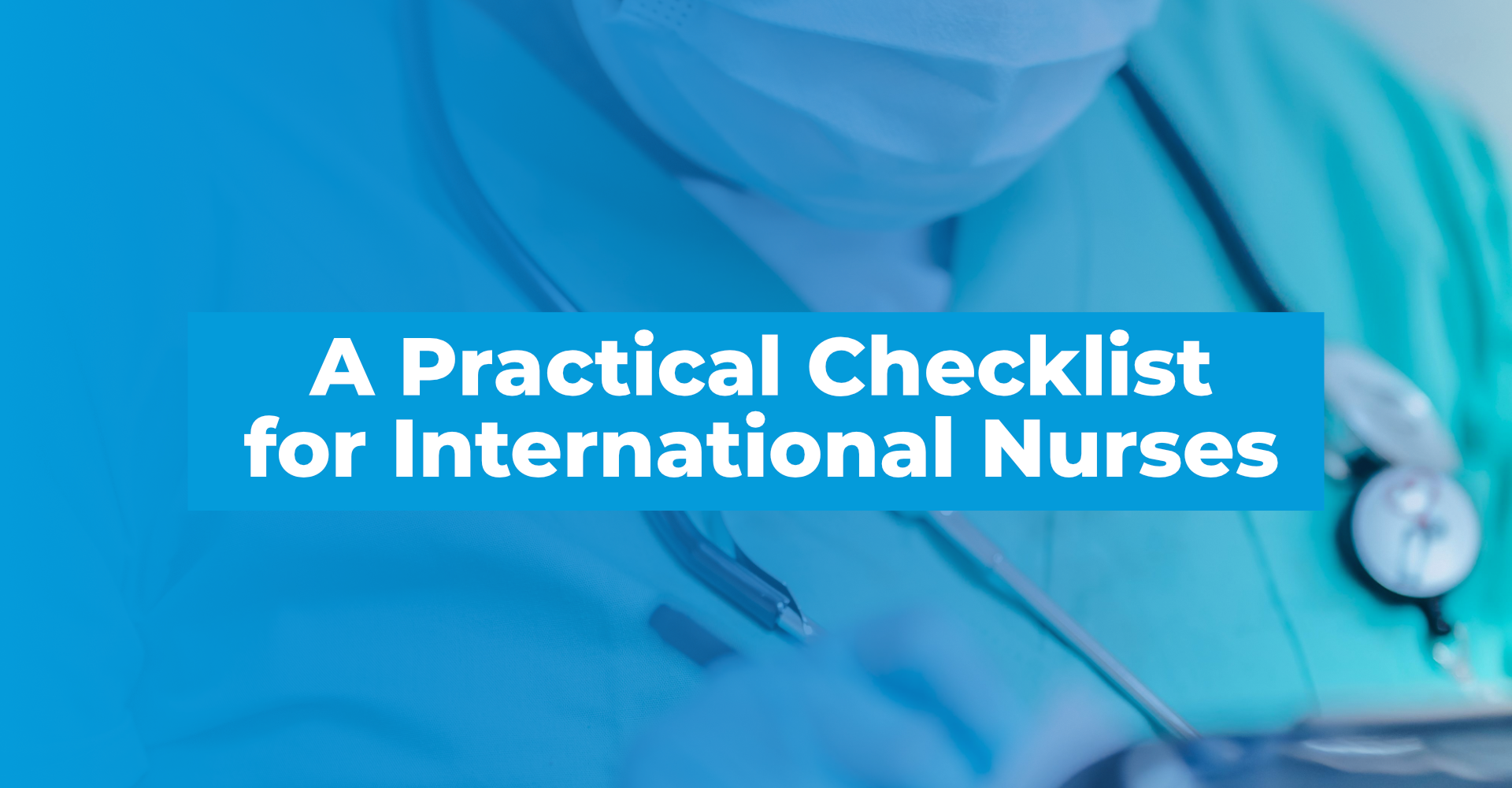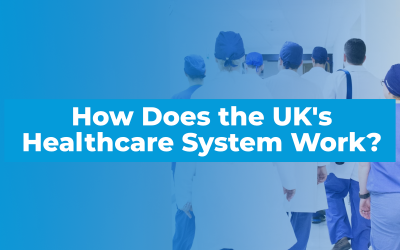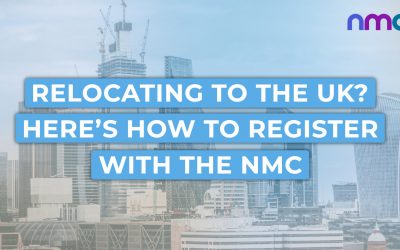Financial Management
Get your National Insurance Number
Your National Insurance Number (NINO) is used as your unique reference number for the UK social security system throughout your life. You need this to avail of certain state benefits and pension. Your NI contributions will be taken from your salary each Month. Most National insurance numbers for overseas workers are given out along with your BRP card however it is very important that you check your BRP card upon collection to ensure that an NI number has been assigned to you. If you have not received an NI number you will need to apply for one through the government website, you can do so here: https://www.gov.uk/apply-national-insurance-number
Open a Bank Account
After arriving in the UK it is very important that you open a bank account ASAP to ensure your new employer has somewhere to send your salary at the end of your first month. This can be difficult for people who are relocating from overseas as you won’t have any UK proof of address however there are some banks available that do support in this particular situation as outlined below. We advise you to go with one of these initially and then you can change to whatever bank you want to after you receive some proof of address or move to your own accommodation.
- https://www.barclays.co.uk/current-accounts/
- https://www.santander.co.uk/personal/current-accounts
- https://www.metrobankonline.co.uk/bank-accounts/products/current-account/
Currency Exchange: Understand how currency exchange works if you’re transferring money from your home country to the UK or vice versa. Compare exchange rates and fees from different providers to minimise costs. Take a look at this website for more information: https://www.xe.com/en-gb/currencyconverter/
Budgeting: Create a budget tailored to your income and expenses in London. Factor in rent/mortgage, transportation, groceries, healthcare, entertainment, and savings goals. Use budgeting tools or apps to track your spending and stay within your means. Here are some links with some helpful tips:
Taxation: Familiarise yourself with the UK tax system, including income tax rates, National Insurance contributions, and any tax deductions or credits you may be eligible for. Everything you need to know is outlined on the UK government website which you can access using this link: https://www.gov.uk/income-tax
Pension Planning: Investigate pension schemes available through your employer or privately. Understand how contributions work, investment options, and retirement age requirements. Seek financial advice if needed to plan for your future. Use the resources below for more information
Entitlements and Benefits: Learn about any entitlements or benefits you may be eligible for as a resident of the UK, such as housing benefits, child benefits, or tax credits. Check eligibility criteria and application procedures. Also, ensure to review your benefits from your employer which is in your booklet included in this brochure
Emergency Funds: Build an emergency fund to cover unexpected expenses or financial setbacks. Aim to save enough to cover three to six months’ worth of living expenses to provide a financial safety net.
Holiday Entitlement: Part of your employment will include a number of paid annual leave days per year. What your full allowance is will be outlined in your contract but will be standard in the NHS depending on length of service etc. For more information on this please see the government website via the link: https://www.gov.uk/holiday-entitlement-rights
Healthcare Management:
Register with your local GP (Doctor): You will need to ensure you register with a GP in the local area to where you will be
staying so that should you require any medical attention or prescriptions you can avail of this. You must do this as soon as you move into an area as spaces can fill up quickly: https://www.nhs.uk/nhs-services/gps/how-to-register-with-a-gp-surgery/
Registering with the dentist: Dental services in the UK can be extremely busy and hard to get into so it is advisable to register for a dentist as soon as you secure your full-time accommodation or if necessary you can do it before then but you will have to remember to change your address. All information on doing this can be found via this link: https://www.nhs.uk/nhs-services/dentists/how-to-find-an-nhs-dentist/
Emergency Medical Services: As you know accidents can happen and being in a new country you may not be aware of how to access emergency medical care so it is important to familiarise yourself with this process. In the UK emergency care is offered through services such as A&E (Accident & Emergency) departments and NHS 111. For more information on emergency services, please see here: https://www.nhs.uk/nhs-services/urgent-and-emergency-care-services/
Pharmacy Services: Understanding the role of pharmacies in providing medication dispensing, advice, and support. In the UK pharmacists are taking on more responsibilities in delivering care to patients. Locating nearby pharmacies and understanding their opening hours and services offered. Information on over-the-counter medications, including dosage, usage, and potential side effects can be found in the links below
- https://www.nhs.uk/nhs-services/pharmacies/how-pharmacies-can-help/
- https://www.nhs.uk/service-search/pharmacy/find-a-pharmacy
Prescription Services: If you ever need to get a prescription for any medication and in certain circumstances, this may need to be repeated you will need to know how this process works. The information in the link below explains how to obtain prescriptions for medications and understand prescription charges or exemptions. Find out more here: https://www.nhsbsa.nhs.uk/nhs-prescription-services
Mental Health Support: Looking after your mental health is of utmost importance and there are many services available to you. Please see the link for information on mental health services, including access to counselling, therapy, and crisis support: https://www.nhs.uk/nhs-services/mental-health-services/
Maternity and Childcare Services: Childcare and maternity services in the United Kingdom offer diverse options tailored to varying family needs. These include preschool nurseries, childminders, after-school clubs, and more. However, availability and affordability can vary by region, with urban areas typically offering more choices. Costs can be high, leading some families to rely on informal childcare networks like relatives or friends. Regarding maternity care, the UK provides comprehensive services, including antenatal and postnatal care, often covered by the NHS. Navigating these options requires balancing quality and affordability to best suit individual circumstances.
- To find out information on pregnancy, please see here: https://www.nhs.uk/pregnancy/
- For information on local childcare providers, including nurseries, childminders, babysitters, and tutors. You can search by location and view profiles, reviews, and availability here: Childcare.co.uk
- Family Information Service (FIS): FIS provides information and advice on childcare options, funding, and support services in each London borough. You can contact your local FIS for personal assistance: https://www.fis.cityoflondon.gov.uk/
- NHS – Childcare and parenting: The NHS website offers guidance on childcare options, including information on choosing childcare providers and financial support available for families: NHS – Childcare and parenting
- Ofsted is the regulatory body responsible for inspecting and rating childcare providers in England. You can search their website to find inspection reports and ratings for childcare providers in London: https://reports.ofsted.gov.uk/
- London Early Years Foundation (LEYF): LEYF operates nurseries across London, providing high-quality early years education and childcare services. You can explore their website to learn about their locations and programs: London Early Years Foundation
Health Insurance: Although healthcare in the UK is free within the NHS, you may look to opt for private insurance at some point. Understanding private health insurance options available in the UK and how they complement NHS services can be beneficial. More information can be found here on private cover options: https://www.bestcompare.com/health-insurance/
Accommodation Management
When it comes to sourcing your accommodation in the UK we have already provided information about the cost of living in London and what to expect along with the best websites to use for sourcing. Leaders in Care also have connections with several providers in London so feel free to ask us for support when required.
Other things you do need to take into consideration when securing your accommodation are listed below
Registering for utilities: When you source your long-term accommodation you may have to register for utilities depending on the type of accommodation you have opted for. Here is a link to a useful guide on what you need to do: https://www.comparethemarket.com/energy/content/setting-up-gas-and-electricity-for-the-first-time/
Council Tax: Residents in London must pay council tax, which contributes to local services like rubbish collection and road maintenance. Understand your council tax band and payment obligations here: https://www.gov.uk/guidance/start-paying-council-tax
Furniture Rental/Removal Services: Furniture rental companies offer temporary furnishings for rented accommodation. Removal services help with transporting belongings to the new property: https://www.getamover.co.uk/FreeQuotes/
Home Insurance: Protecting your belongings with home insurance is advisable. Compare insurance providers and policies to find suitable coverage for your accommodation: https://www.comparethemarket.com/ps/home-insurance/
Tenancy Deposit Protection Scheme: Ensure that your tenancy deposit is protected under a government-approved scheme. This protects tenants’ deposits and ensures fair dispute resolution at the end of the tenancy: https://www.gov.uk/tenancy-deposit-protection
Postal Services: Redirecting mail from your previous address and updating your address with relevant organisations and authorities is crucial. The Royal Mail offers a redirection service for mail: https://www.royalmail.com/personal/receiving-mail/redirection
Local Amenities and Services: Familiarise yourself with nearby amenities such as supermarkets, pharmacies, healthcare facilities, schools, public transportation, and recreational areas.
Neighbourhood Regulations: Understand any local regulations or restrictions that may apply in your new neighbourhood, such as parking permits or waste disposal rules.
Community Resources: Explore community resources and facilities, such as libraries, community centres, and local events, to integrate into your new neighbourhood.
OSCE Support
OSCE Training: Your OSCE training has been scheduled for you, and Leaders in Care have provided your training materials and course content. The training will be conducted in a London training facility over six days, encompassing both practical and theoretical aspects. In addition to the main training, there will be onsite sessions with our People Team, and you will meet Cathy Wilson, our Clinical Education Specialist, during your first week for further discussions. Detailed information regarding your training is available in your induction plan, accessible via the link provided at the beginning of this pack.
Individualised Support: Recognising that candidates learn at different paces, additional support will be provided as necessary. This may include development and support plans, extra study sessions, and mock OSCE exams.
Study Day Allocations: Each study day will be allocated 7.5 paid hours to your roster. The team will communicate start times and room allocations via WhatsApp.
Compulsory Attendance: Attendance on study days is compulsory as they are crucial in preparing you for your OSCE. If unable to attend due to illness or any other reason, please notify the team promptly.
Professionalism and Attire: Wear your clinical uniform to all study days and practice sessions. Punctuality is essential to avoid class delays, and professional behaviour is expected. Mobile device usage during class should be limited to urgent matters, and exiting the room is advised.
Engagement and Preparedness: Come prepared to learn and engage fully with the trainers. Utilise provided resources to prepare before study days for optimal learning outcomes.
OSCE Exam
Your OSCE exam has already been booked for you. Within five days of booking, you will receive an email from the test centre, sent to the email address provided on the NMC portal. Notify the NMC directly if your email address has changed. Travel arrangements for the exam have been made and will be communicated upon arrival.
Results will be emailed to you within seven days of the exam. If a station requires resitting, consult with the team before rebooking. Additional mock OSCE exams will be conducted to ensure readiness for resitting. Inform your ward manager of the exam results.
Upon passing the OSCE exam, await an email from the NMC containing your PIN number for registration. The registration fee of £120 will be reimbursed as part of your package. Remember to renew your NMC registration annually to maintain active registration status and eligibility to work.
Understanding the NMC Code of Conduct
As you embark on your journey of relocation to the UK, we want to emphasise the importance of familiarising yourself with the Nursing and Midwifery Council (NMC) Code of Conduct. The NMC Code serves as a cornerstone for professional practice and sets out the standards of conduct, performance, and ethics expected of nurses in the UK.
Here’s why it’s crucial for you to understand and adhere to the NMC Code of Conduct:
Professional Accountability: The NMC Code outlines your responsibilities as a registered nurse, including the duty to prioritise the safety and well-being of patients at all times. Understanding these responsibilities is fundamental to your role as a healthcare professional.
Ethical Practice: The Code provides guidance on maintaining ethical standards in your practice, ensuring that you uphold principles of dignity, respect, and confidentiality when caring for patients. Adhering to these principles fosters trust and confidence in your abilities as a nurse.
Quality Care Delivery: By familiarising yourself with the NMC Code, you gain insight into best practices for delivering high-quality care. It emphasises the importance of evidence-based practice, continuous learning, and effective communication in promoting positive outcomes for patients.
Legal and Regulatory Compliance: Compliance with the NMC Code is not only a professional obligation but also a legal requirement for registered nurses in the UK. Failure to adhere to the Code can result in disciplinary action, including suspension or removal from the NMC register.
Professional Development: Understanding and applying the principles of the NMC Code contribute to your professional development as a nurse. It encourages reflection, self-awareness, and ongoing learning to enhance your practice and ensure that you provide the best possible care to your patients.
In summary, familiarising yourself with the NMC Code of Conduct is essential for your successful integration into the UK healthcare system. It forms the foundation of your professional practice and underpins your commitment to delivering safe, effective, and compassionate care to those in need.
We encourage you to thoroughly review the NMC Code and refer to it regularly as you embark on your nursing career even after passing your OSCE exam. It is important for you as a nurse to adhere to this code on a day-to-day basis in your nursing practice: https://www.nmc.org.uk/standards/code/
Helpful Organisations
Royal College of Nursing (RCN): The largest union and professional body for nursing in the UK, representing nurses, midwives, and nursing support workers. Provides support, resources, and advocacy for members.
UNISON: Represents full-time and part-time staff providing public services and utilities. Offers support, advice, and representation for members in various sectors.
Unite: A union representing workers across various industries, including healthcare. Offers support and representation for nurses and healthcare professionals.
International Nursing Associations in England:
Provide pastoral and professional support for international nurses working in the NHS.
- Association Isabel Zendal:
- Association of Spanish Nurses and Health Workers working in the UK.
- British Indian Nurses Association
- Caribbean Nurses and Midwives Association UK
- Commonwealth Nurses and Midwives Federation
- Filipino Nurses Association United Kingdom
- Gambia Healthcare Matters UK
- Ghana Nurses Association UK
- Hong Kong Nursing Association UK
- Kenyan Nurses And Midwives Association UK
- Malawian-UK Nurses Association for Advancement
- Mauritian Nurses and Healthcare Professionals UK
- Nepalese Nursing Association UK
- Nigerian Nurses Charitable Association UK
- Nurses Association of Jamaica UK
- Philippine Nurses Association of United Kingdom
- Uganda Nurses Midwives Association
- Zimbabwean Midwives and Nurses Association
Glossary of Useful English Slang
- Bagsy- to allocate to yourself
- Bloke- male
- Bog standard- average
- Botched- poorly done
- Brolley- umbrella
- Builder’s tea- strong tea
- Cack-handed- something that has been performed clumsily, poorly
- Cheers- thank you, good health
- Chinwag- chat, conversation
- Chock-a-block- describes a venue that is very busy
- Chuffed- overjoyed, very happy
- Codswallop- something that is untrue
- Cream crackered- very tired, exhausted
- Cuppa- cup of tea
- Cheesed off- disappointed, angry
- Daft- silly, juvenile
- Dodgy- questionable, suspicious
- Faff- something that is complicated
- Fluke- something that happens by chance
- Gaff- home/house
- Gobsmacked- very surprised
- Gutted- very upset
- Her Majesty’s Pleasure- time in prison
- Jiffy- short period of time
- Kip- short sleep
- Knackered- very tired
- Lost the plot- become confused
- Lush- very nice
- Miffed- annoyed
- Minted- wealthy
- Off colour- unwell
- Pear shaped- something that has gone wrong
- Piece of cake- easy
- Poorly- unwell
- Shambles- something that is disorganised
- Skive- shirk responsibilities
- Taking the biscuit- taking advantage of something
- Wobbler- tantrum
- Yonks- long period of time
Medical Abbreviations
Understanding medical abbreviations is crucial for healthcare professionals relocating from overseas for several reasons:
Effective Communication: Medical abbreviations are commonly used in clinical documentation and communication between healthcare professionals. Familiarity with these abbreviations ensures clear and efficient communication in healthcare settings.
Patient Safety: Misinterpretation of medical abbreviations can lead to errors in patient care and jeopardise patient safety. Understanding abbreviations helps healthcare professionals accurately interpret medical records and orders, reducing the risk of adverse events.
Efficient Workflow: Healthcare environments often operate at a fast pace, requiring quick and accurate communication. Knowing medical abbreviations streamlines workflow processes and facilitates timely decision-making and patient care.
Integration into Healthcare Teams: Proficiency in medical abbreviations demonstrates competence and familiarity with medical terminology, enhancing the ability to collaborate effectively with colleagues and integrate into healthcare teams.
Professionalism and Confidence: Being knowledgeable about medical abbreviations enhances professional credibility and confidence in clinical practice. It demonstrates readiness to provide high-quality care and contributes to professional development and advancement.
Professional Titles:
- RN: Registered Nurse
- FY1/FY2: Foundation Year 1 or Foundation Year 2 Doctor (junior doctors in their first or second year of postgraduate medical training)
- SpR: Specialist Registrar (a doctor in higher specialist training)
- HCSW: Healthcare Support Worker (a healthcare professional who provides support to nursing staff)
- OT: Occupational Therapist
- CPN: Community Psychiatric Nurse
- RMN: Registered Mental Health Nurse
- RNLD: Registered Nurse, Learning Disabilities
Procedures and Investigations:
- BP: Blood Pressure
- CT scan: Computerised Tomography Scan
- CVP: Central Venous Pressure
- CXR: Chest X-ray
- ECT: Electro-Convulsive Therapy
- ECG: Electrocardiogram
- EEG: Electroencephalogram
- ESR: Erythrocyte Sedimentation Rate
- FBC: Full Blood Count
- Hb: Haemoglobin
- IVP: Intravenous Pyelogram
- LFT: Liver Function Tests
- MRI: Magnetic Resonance Imaging
- TPN: Total Parenteral Nutrition
- TPR: Temperature, Pulse, Respiration
- U&E: Urea and Electrolytes
Medical Abbreviations
- A&E- accident and emergency
- BD- twice daily
- BMI- body mass index
- Ca- cancer
At Leaders in Care, we have a dedicated international division with expert consultants who understand the difficulties and nuances of relocating to the UK. They are primed to help you on your end-to-end journey from simplifying the registration process to finding you the ideal role. For more information, get in touch today!




